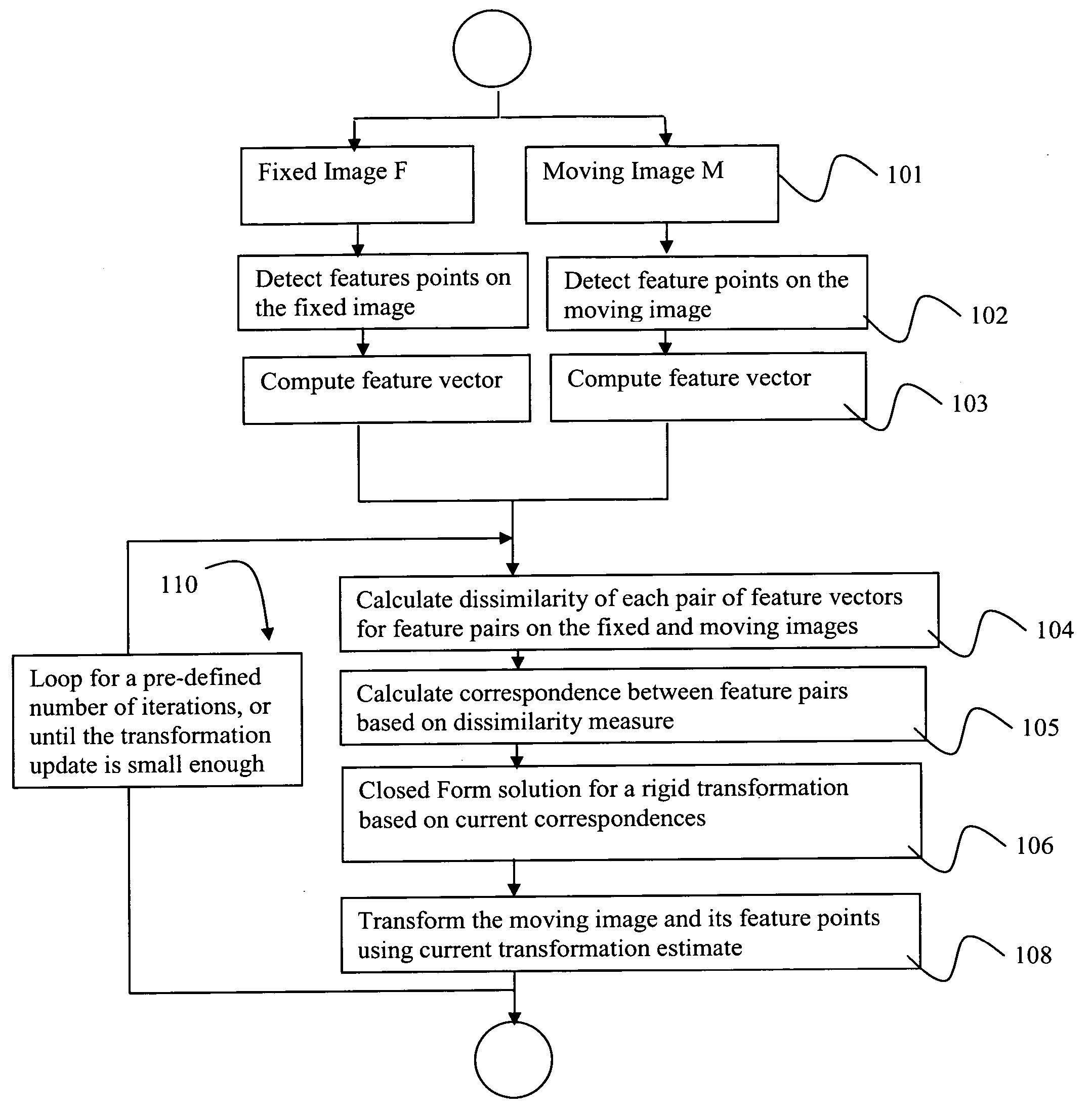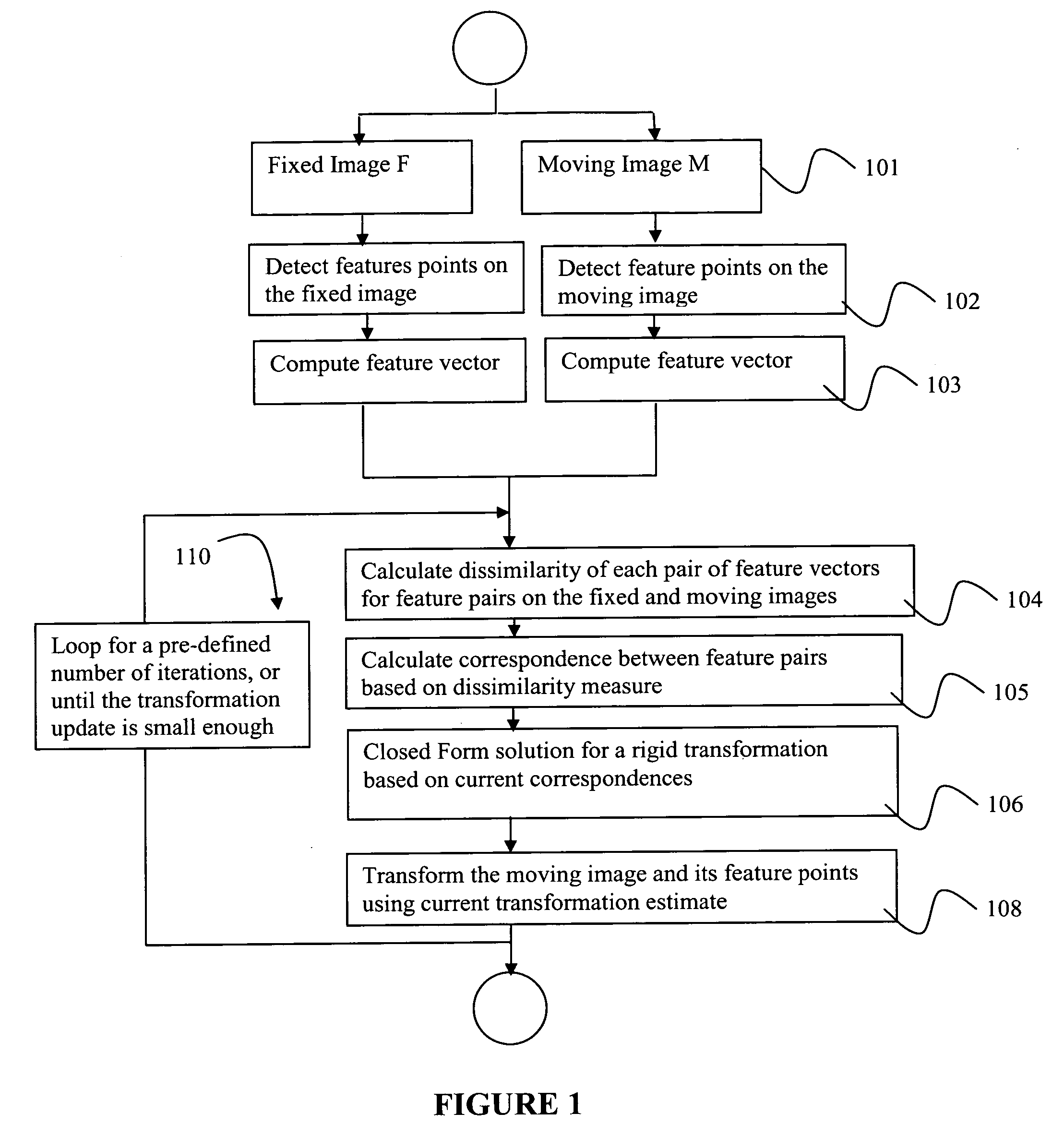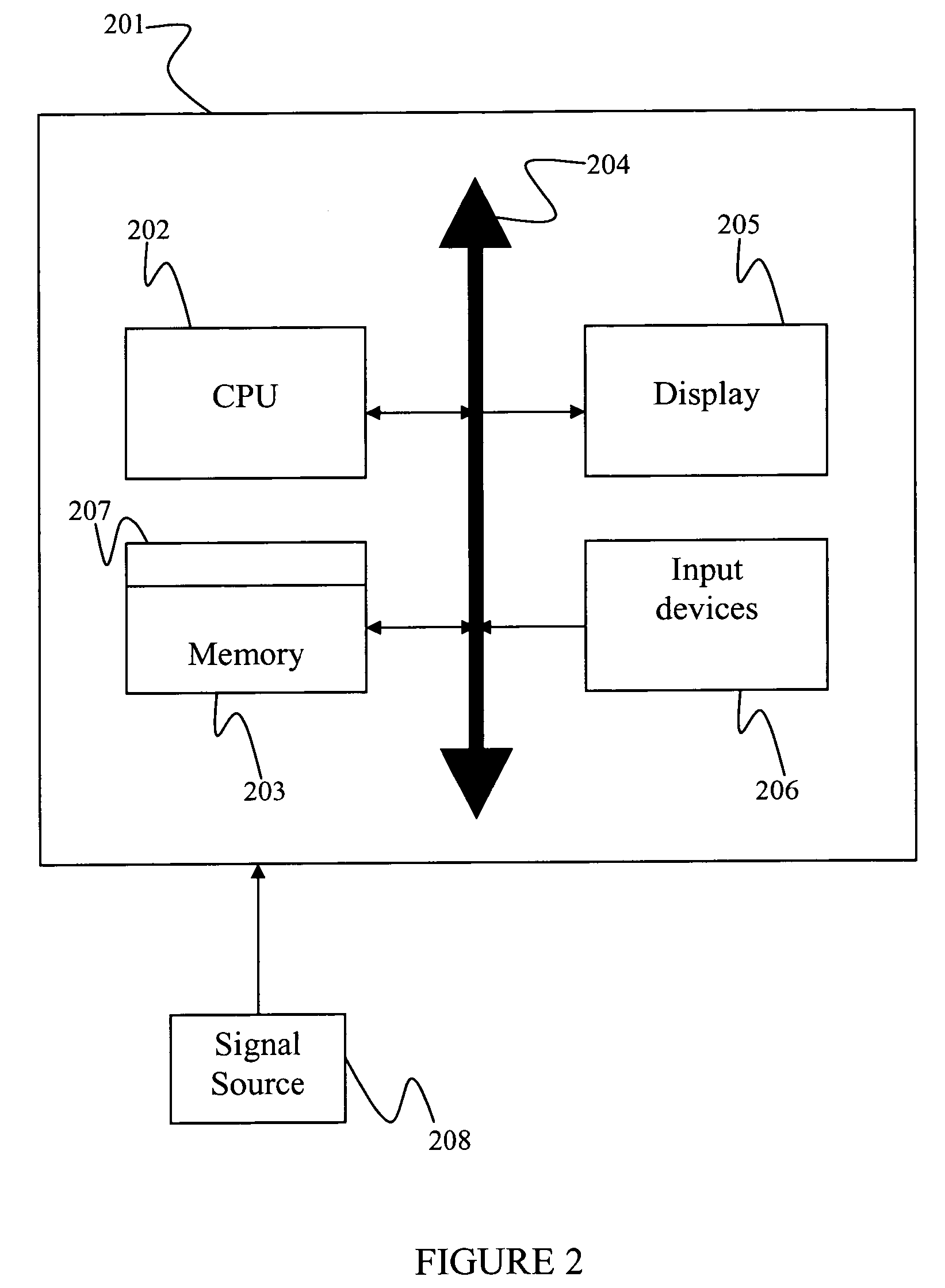Method and system for hybrid rigid registration of 2D/3D medical images
a technology of medical images and registration methods, applied in image analysis, instruments, computing, etc., can solve the problems of high computational cost, high method complexity, and high computational cost, and achieve the effect of increasing weigh
- Summary
- Abstract
- Description
- Claims
- Application Information
AI Technical Summary
Benefits of technology
Problems solved by technology
Method used
Image
Examples
Embodiment Construction
[0027] The hybrid registration methods herein disclosed provide a generic, flexible framework in which an efficient algorithm can be developed for registration in various applications. FIG. 1 depicts a flow chart illustrating the steps of a preferred fast hybrid registration algorithm. Although the hybrid registration methods disclosed herein are described using a 2D image as an example, the methods disclosed can readily be applied to matching feature points in 3D or higher dimensional images.
[0028] As a first step, step 101, a fixed image and a moving image are provided, and feature points on the two images are detected at step 102. Feature points on both the fixed image and the moving image should be identified using the same salient feature criterion. The feature selection criterion can be designed to prefer features that are present in both images, and features that are relatively unique. One potential feature involves local gray value (intensity) variance maxima points. By way...
PUM
 Login to View More
Login to View More Abstract
Description
Claims
Application Information
 Login to View More
Login to View More - R&D
- Intellectual Property
- Life Sciences
- Materials
- Tech Scout
- Unparalleled Data Quality
- Higher Quality Content
- 60% Fewer Hallucinations
Browse by: Latest US Patents, China's latest patents, Technical Efficacy Thesaurus, Application Domain, Technology Topic, Popular Technical Reports.
© 2025 PatSnap. All rights reserved.Legal|Privacy policy|Modern Slavery Act Transparency Statement|Sitemap|About US| Contact US: help@patsnap.com



